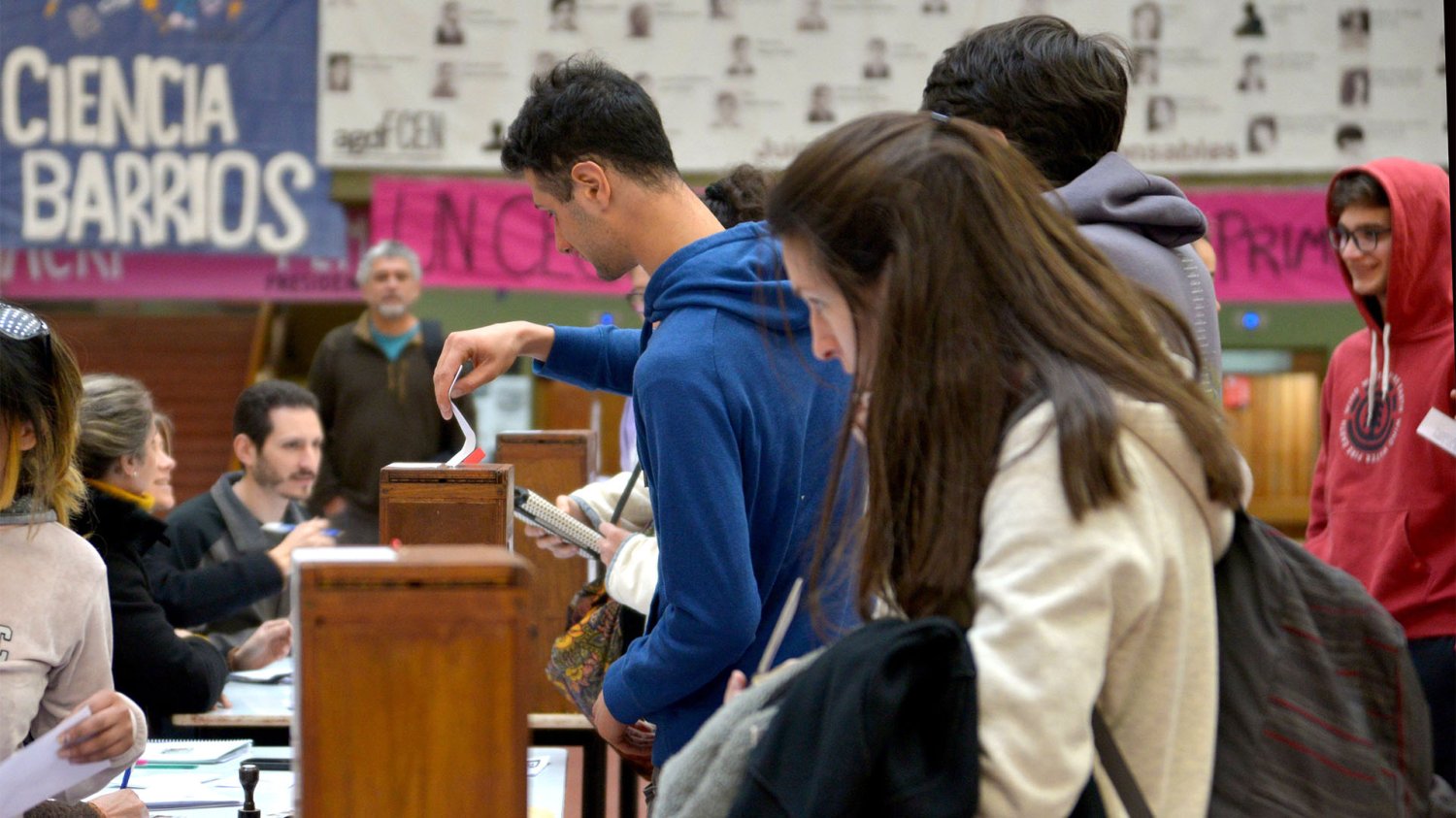
Have you just entered college? This note is for you. If you are already in college, there were no elections last year, so take a look at what is being voted on. Courses start with welcomes from the faculty’s political groups, in the hallways they give you a flyer, because From September 2 to 6, voting takes place simultaneously and is mandatory for all students throughout the University of Buenos Aires. Representatives are elected to the faculty boards and to the student center of each institution, and in some faculties, there are votes for the program boards. One vote is cast per person for each of these instances.
In the first quarter, the university was in the news, with a massive mobilization in the City of Buenos Aires and throughout the country, on April 23 was protested against the defunding carried out by Milei’s government. The strength of the street was crossed by the businesses of different political sectors, the UCR with Lousteau at the head negotiated the university budget in exchange for votes for the Ley Bases (Bases Law) which included privatizations, pension cuts and labor reform, and now they intend to take away the right to protest. At the university, the UCR has its groups: they are the Franja Morada or New Space, They are the ones who run several student centers and the FUBA. And they have their partners from one of the Peronist parties, the UES, which runs the Social Sciences department. The second quarter started with a strike in all the faculties by teachers and non-teaching staff, because the lack of funding from all the governments and the cuts from the current one, leave teachers with literally poverty-level salaries for those who earn them and thousands who are ad honorem, that is, they give free classes. You are also having a hard time making ends meet and keeping up with your coursework if you work and study, it is also difficult with the increases in transportation, rent and food.
In the faculties there are also Peronist groups, In all its variants with division and scandals in the country, at the university they repeat the same thing, don’t worry. In the Faculty of Pharmacy, sectors of Peronism are united with the radicals, it is not surprising if you see that in the governing bodies of the UBA they also lead together, last quarter the Peronist authorities of many faculties self-applied the adjustment, the famous “there is no money” was appropriated and they even left the courses without electricity for days to “save”, but if it seemed funny to you, it stops being so when they voted together to take away the social security of retired and ad honorem teachers. In other faculties there are those who are the Grabois groups, who despite an opposition speech as the leadership of the student centers did not take care of being at the forefront of calling for instances of organization and debate to be up to the task of facing Milei, and they supported adjustments in the faculties such as the reduction of hours in Philosophy and Letters, which especially affect working students. We cannot deal with the same old people, nor with those who ask us to repeat the same history. We must be independent of those who have already governed, and those who ask to re-elect Scioli who ended up in Milei’s government, Massa working for a vulture fund, or Alberto Fernandez who adjusted and left the country with 40% poverty and today finds himself involved in allegations of gender violence.
If you follow the deputies of the Left Front, you will be interested in Myriam Bregman, Nico Del Caño, Christian Castillo who is also a professor at the UBA, or Alejandro Vilca, their groups are in each faculty: We are En Clave Roja in Philosophy and Letters, Social Sciences, Psychology, Medical Sciences, Pharmacy and Biochemistry, Economics, Exact Sciences, and headquarters of the CBC, Contraimagen in FADU and CEProDH / The Left in Law. In order for the left to become stronger in the university in the face of so much right-wing sentiment and resignation, we need you. Indoctrination Marxism? Yes. In Philosophy and Letters, the left is close to recovering the student center that is currently in the hands of Peronism in the El Colectivo list (Patria Grande, Movimiento Evita and La Cámpora), which is why they call for the unity of all left-wing groups to strengthen the struggle from the student bases and in a democratic way, a Center by and for the students.
We provide you with all the information about which bodies are voted on, how they are formed and why your participation is important.
Student centers: This is the tool that students have to organize themselves. They win by automatic majority: it works with “one person, one vote” and all students who have passed at least two subjects in the CBC can vote. The winning force obtains the presidency of the student center and the second place gets the general secretary and the rest of the secretaries are distributed among the other lists that are presented. With the results in each faculty, the different forces also distribute the delegates for the FUBA (Buenos Aires University Federation) congress.
Board of Directors: These are the governing bodies of each faculty, where most of the decisions are made about academic content, competitions and teaching appointments, among other things. Sixteen councillors are elected: 8 by the faculty, 4 by the student body and 4 by the graduate body. The faculty does not include the teachers who teach every day. Only those who have competed can apply and vote, and they are a tiny minority. The “ad honorem” and interim teachers do not participate, or they do so as graduates. It is a historical requirement that non-teaching workers, those who guarantee the daily functioning of the university, participate in the governing bodies. Today, only one representative of the non-teaching staff participates, with voice but no vote, in the governing councils of some faculties.
Race Boards: These are advisory bodies on specific topics for each degree. Faculties such as Philosophy and Letters and Social Sciences maintain these bodies with a composition similar to that of the board of directors: 5 counselors for each faculty. The decisions they make are then submitted to the board of directors for final approval. Other faculties such as Law, Economics, Medicine, among others, do not have boards of directors but rather departments designated by the authorities and without student participation.
Source: www.laizquierdadiario.com

